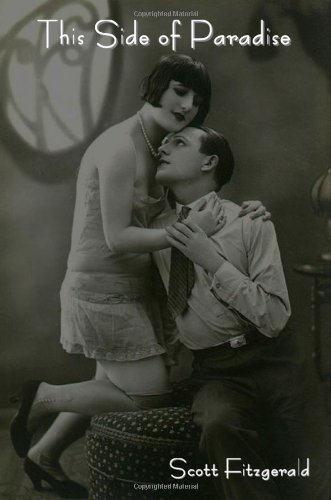All Nonfiction
- Bullying
- Books
- Academic
- Author Interviews
- Celebrity interviews
- College Articles
- College Essays
- Educator of the Year
- Heroes
- Interviews
- Memoir
- Personal Experience
- Sports
- Travel & Culture
All Opinions
- Bullying
- Current Events / Politics
- Discrimination
- Drugs / Alcohol / Smoking
- Entertainment / Celebrities
- Environment
- Love / Relationships
- Movies / Music / TV
- Pop Culture / Trends
- School / College
- Social Issues / Civics
- Spirituality / Religion
- Sports / Hobbies
All Hot Topics
- Bullying
- Community Service
- Environment
- Health
- Letters to the Editor
- Pride & Prejudice
- What Matters
- Back
Summer Guide
- Program Links
- Program Reviews
- Back
College Guide
- College Links
- College Reviews
- College Essays
- College Articles
- Back
This Side of Paradise by F. Scott Fitzgerald MAG
Desiring success, yearning for status, longing for love – this ideology marks the debut novel of F. Scott Fitzgerald. This Side of Paradise is a semi-autobiographical take on his young adulthood. With graceful prose, varying stylistic techniques, and a keen intellect, he chronicles the life of Amory Blaine, a Princeton undergraduate in pursuit of recognition. Amory becomes disillusioned, however, as his experiences derail his quest.
At Princeton, Amory treats the school as a country club. Here, he feels free to assert his dominance. He slowly climbs to the top of Princeton's social caste system, but then he falters. One math exam later, his score assures his inability to bid for social aristocracy.
Amory then begins his inevitably unsuccessful search for a suitable wife, and his failing relationships truly underscore his insecurity. He remains desperate for a partner after his affection for his first two choices is fleeting. Upon meeting his third match, Rosalind, Amory falls deeply in love and even deeper in trouble. Rosalind wants a wealthy man, and Amory is unable to adequately support her. She leaves, sending him into alcoholism. With its depictions of loss, This Side of Paradise displays the eventual cynicism of an aging Amory.
Delivered in a loosely winding narrative, This Side of Paradise finds an author exploring the worth of his entire generation, a generation that adored the book. Each character brims with life. Likewise, readers will likely feel sympathetic for Amory, an egotistical man whose journey for self-importance becomes one of self-recognition.
This classic remains relevant in its themes and thoughtful introspection, qualities that allow the novel's serpentine flow to seem oddly charming, not frustrating. Today, it still boasts one unfailing asset – a driving thirst for life – making it an engaging tale for all young adults to enjoy.
Similar Articles
JOIN THE DISCUSSION
This article has 1 comment.

